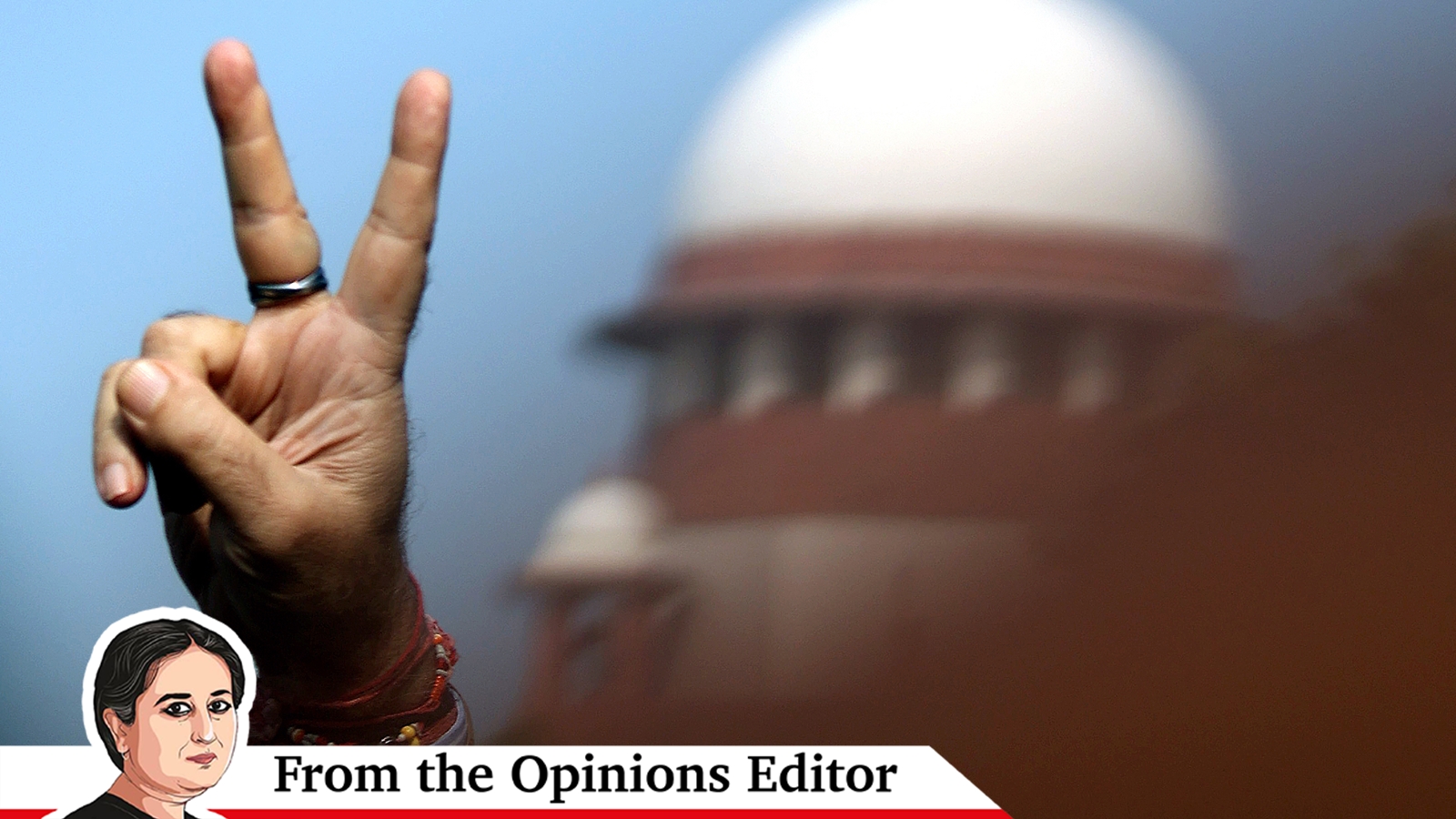The wheels of Mandal have not stopped turning, and though they struck the most sparks and caused the maximum friction in the turbulent 1990s, their force is not yet spent. They can, potentially, still do both — deepen the constitutional promise of substantive equality, and unsettle and divide politically.
This was underlined by the Supreme Court’s important verdict this week permitting the sub-classification of Scheduled Castes and Scheduled Tribes for the purpose of reservation. It extended the sub-classification principle from OBCs to SCs/STs, holding that it is not unconstitutional to consider the latter an heterogeneous category and empowering the states to carry out internal differentiation to fine-tune affirmative action policies.
So far, all attempts by states to introduce sub-quotas within SCs have been struck down by the Court as a violation of Article 341 — which accords the President the power to designate groups to be included in the SC category and gives Parliament the power to make additions and deletions to the SC list — and of the Right to Equality enshrined in Article 14.
The Court lays down red lines to guard against whim and political expediency — it casts the onus on the state to demonstrate the need for the sub-classification, to bring empirical evidence, and spell out a reasonable rationale that promotes rather than denudes the guarantee of equality, with the whole process subject to judicial review. Voices have already been raised, however, in opposition to the apex court verdict. There will be more contentiousness and controversy in days to come — the criticisms and fears that it has sparked, especially among the Dalits, will need to be heeded and addressed.
The apprehensions are that sub-classification of SCs strips away vital constitutional protections and opens up possibilities of tinkering and misuse, that the process will be hijacked by politics, that it will inaugurate a competition among the most disadvantaged, pitting SC against SC.
At the core of the verdict, however, is empirical and historical evidence of a wide disparity between groups within the SC fold, which also makes them unequally placed to take advantage of reservation, even as all face the same scourge and stigma of untouchability. Going ahead, for the verdict to be implemented fairly on the ground, therefore, it will need a comprehensive caste census at the national level, or at the very least, caste surveys by states — like the one Bihar carried out in 2023.
Bihar, in fact, also tried to design preferential policies for the most downtrodden within the SCs — not by instituting sub quotas, like several other states did, their attempts hitting against the court’s wall, but through special and specific government programmes, ranging from land to the landless and skill training to toilet and health facilities, from distribution of school uniforms and education loans to formation of self-help groups. The spectacular twists and turns of the Nitish Kumar government’s 2007 Mahadalit experiment offer an inkling of why social justice policies are often looked upon as products of a cynical vote bank politics.
In 2007, the Nitish government set up a State Mahadalit Commission, which, using the criteria of literacy rates, representation in services and social stigma, identified 18 of Bihar’s 22 Dalit castes as Mahadalit, the poorest and weakest among Dalits. All except four — Jatavs and Paswans, the two most numerically dominant groups, and Pasis and Dhobis, the two groups seen to be relatively better off in terms of development parameters among Dalits.
As a result of political pressures, arguably, from within Nitish’s own party and outside it, a year later, in 2008, Pasis and Dhobis were also included in the Mahadalit list. In 2009, Jatavs followed them, leaving out only Paswans. In 2018, finding himself on the same political side as Ram Vilas Paswan’s LJP, Chief Minister Nitish Kumar promised that the government would extend to the Paswans the same special schemes it had designed for Mahadalits.
His announcement sparked an extraordinary question in Bihar — if every Dalit was designated as a Mahadalit, or was to be treated as such, who was a Dalit, and who was a Mahadalit?
That Bihar question also frames some of the political difficulties of attempts to rework or recast policies of affirmative action and social justice in a country where an intensely competitive politics plays out in a setting of deep-seated and continuing inequalities.
The apex court’s verdict is potentially transformative, it can help widen and deepen the scope of reservation to reach those who need it most. First of all, however, it will need legislatures, political parties and governments to take the baton from the court. They will need to find a language that evokes trust and dents cynicism, one that can, in the long run, help them mediate a just and fair implementation of the apex court verdict on the ground.
Till next week,
Vandita



